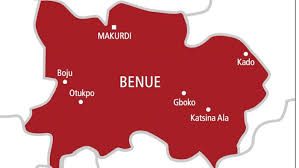The only exemption is the Minister of the Federal Capital Territory, Muhammad Bello, who bagged both a bachelor’s and master’s degree in business administration from the university, in 1980 and 1987 respectively, after which he graduated from the International University of Africa, Sudan, in 1994.
The Minister of State for Environment, Sharon Ikpeazu, on her part, went to ABU for IJMB in 1981.
The alumni of the university include the Minister of Education, Adamu Adamu; Ministry of State for Industry, Maryam Katagum; Minister of State for Power, Goddy Jedy Agba; Minister of Water Resources, Suleiman Adamu; Minister of Finance, Zainab Ahmed; and Minister of Agriculture, Sabo Nanono.
Others are Minister of Defence, Bashir Magashi; Minister of State for the Federal Capital Territory (FCT) Ramatu Tijjani; Minister of State for Foreign Affairs, Zubair Dada; Minister of Sports and Youth Development, Sunday Dare; Minister of Police Affairs, Maigari Dingyadi; and Minister of Humanitarian Affairs, Sadiya Faruk.
Nuhu Ibrahim, Ahmadu Bello University’s best graduating student in 2018 and overall best valedictorian (4.94 CGPA) in the 58 years history of the university, said this could be because of ABU’s long heritage and prestige. Mr Ibrahim is now studying for masters in artificial intelligence at the University of Manchester.
“The universities are super old and you would expect that they will have grown up past students,” Mr Ibrahim said over the telephone.
“I won’t also deny the fact that graduating from some particular universities has a little impact on the networking factor which has a further impact on overall success,” he added.
University of Lagos placed second, with eight of the nation’s current ministers having obtained at least a degree from the university. Three of them had their formative educational qualification from the university, while the other five enrolled in the school for further studies.
Four other ministers attended the University of Jos, but only women affairs minister, Paulen Tallen, had her first degree, in sociology from the school after which she graduated from the John Kennedy School of Government in 2002. Emeka Nwajiuba, the minister of state for education, has a law PhD degree in view from the university.
Likewise, the University of Maiduguri has three alumni among the ministers.
The University of Benin, the University of Port Harcourt, Usmanu Danfodiyo University, Obafemi Awolowo University and Ambrose Alli University each produced two graduates among the current crop of ministers.
The University of Ibadan, the University of Calabar, Imo State University, the Abubakar Tafawa Balewa University and the University of Nigeria each have one ministerial alumni on their roll.
Both President Muhammadu Buhari, who doubles as petroleum minister, and defence minister Bashir Magashi attended the Nigerian Defence Academy.
Although Mr Magashi would later obtain an advanced diploma in public administration at Ahmadu Bello University before studying law at the same university in 1983, Mr Buhari pursued his military career by attending Mons Officer Cadet School, Aldershot, UK, where he graduated from in January 1963.
While 18 of the ministers bagged various degrees from foreign institutions, four of them had their formative higher educational degrees from institutions outside the shores of Nigeria.
Of the quartet, state transportation minister, Gbemisola Saraki, who holds a bachelor’s degree in economics from the University of Sussex Falmer in 1987, had all her education outside Nigeria.
For health minister, Osagie Ehanire, after completing his primary school education in Benin and secondary school in Ibadan, he proceeded to Ludwig-Maximillian Universität München, Germany, to study medicine, and then to the Royal College of Surgeon, Ireland, where he bagged a diploma in anaesthetics.
Environment minister Muhammad Mahmood, earned respective bachelor and master’s degrees in microbiology in 1983 and resources management in 1985 from Central Washington University. In 1990, he bagged a PhD in watershed management from the University of Arizona.
Foreign minister Geoffrey Onyeama earned two bachelor’s and master’s degrees, both in political science and law. He obtained them from Columbia University, Cambridge University, and the University of London, where he got his second masters honour.
Premium Times Nigeria
BUA Group Ad
ADVERTISEMENT
FILE PHOTO: DURING THE PRESIDENTIAL RETREAT F0R MINISTERS 16.R-L; Ministers; Ramatu Tijjani, Abubakar Malami, Sen Hadi Sirika, Maigarai Dingyadi and others during the Opening ceremony of the Presidential retreat for Ministers Designate, Presidential Aides and other Top Government Functionaries held at the State House Abuja. PHOTO; SUNDAY AGHAEZE. AUG 19 2019.
FILE PHOTO: Some Nigerian Ministers during the presidential retreat for newly appointed ministers: R-L; Ministers; Ramatu Tijjani, Abubakar Malami, Sen Hadi Sirika, Maigarai Dingyadi and others during the Opening ceremony of the Presidential retreat for Ministers Designate, Presidential Aides and other Top Government Functionaries held at the State House Abuja. PHOTO; SUNDAY AGHAEZE. AUG 19 2019.
SPECIAL REPORT: About one-third of Nigeria’s ministers attended same university
Eighteen ministers also bagged degrees from foreign institutions.
ByYusuf Akinpelu March 14, 2021 5 min read
Thirteen of Nigeria’s current 44 ministers graduated from the Ahmadu Bello University, an extensive review of their official resumes have shown.
A PREMIUM TIMES’ review of the details further shows that all the 13 obtained only their first degrees from the 58-year-old institution formerly named the University of Northern Nigeria.
The only exemption is the Minister of the Federal Capital Territory, Muhammad Bello, who bagged both a bachelor’s and master’s degree in business administration from the university, in 1980 and 1987 respectively, after which he graduated from the International University of Africa, Sudan, in 1994.
The Minister of State for Environment, Sharon Ikpeazu, on her part, went to ABU for IJMB in 1981.
The alumni of the university include the Minister of Education, Adamu Adamu; Ministry of State for Industry, Maryam Katagum; Minister of State for Power, Goddy Jedy Agba; Minister of Water Resources, Suleiman Adamu; Minister of Finance, Zainab Ahmed; and Minister of Agriculture, Sabo Nanono.
Others are Minister of Defence, Bashir Magashi; Minister of State for the Federal Capital Territory (FCT) Ramatu Tijjani; Minister of State for Foreign Affairs, Zubair Dada; Minister of Sports and Youth Development, Sunday Dare; Minister of Police Affairs, Maigari Dingyadi; and Minister of Humanitarian Affairs, Sadiya Faruk.
Nuhu Ibrahim, Ahmadu Bello University’s best graduating student in 2018 and overall best valedictorian (4.94 CGPA) in the 58 years history of the university, said this could be because of ABU’s long heritage and prestige. Mr Ibrahim is now studying for masters in artificial intelligence at the University of Manchester.
“The universities are super old and you would expect that they will have grown up past students,” Mr Ibrahim said over the telephone.
“I won’t also deny the fact that graduating from some particular universities has a little impact on the networking factor which has a further impact on overall success,” he added.
RelatedNews
Osun govt condemns killing of six members of same family
Global Fund indicts, blacklists Nigerian firm over alleged $3 million fraud
ICPC drops school result forgery charges against ex-presidential aide, Obono-Obla
End of insurgency in sight – Official
Choice universities
University of Lagos placed second, with eight of the nation’s current ministers having obtained at least a degree from the university. Three of them had their formative educational qualification from the university, while the other five enrolled in the school for further studies.
Four other ministers attended the University of Jos, but only women affairs minister, Paulen Tallen, had her first degree, in sociology from the school after which she graduated from the John Kennedy School of Government in 2002. Emeka Nwajiuba, the minister of state for education, has a law PhD degree in view from the university.
Likewise, the University of Maiduguri has three alumni among the ministers.
Dangote adbanner 728x90_2 (1)
The University of Benin, the University of Port Harcourt, Usmanu Danfodiyo University, Obafemi Awolowo University and Ambrose Alli University each produced two graduates among the current crop of ministers.
The University of Ibadan, the University of Calabar, Imo State University, the Abubakar Tafawa Balewa University and the University of Nigeria each have one ministerial alumni on their roll.
Both President Muhammadu Buhari, who doubles as petroleum minister, and defence minister Bashir Magashi attended the Nigerian Defence Academy.
Although Mr Magashi would later obtain an advanced diploma in public administration at Ahmadu Bello University before studying law at the same university in 1983, Mr Buhari pursued his military career by attending Mons Officer Cadet School, Aldershot, UK, where he graduated from in January 1963.
Foreign trained
While 18 of the ministers bagged various degrees from foreign institutions, four of them had their formative higher educational degrees from institutions outside the shores of Nigeria.
ADVERTISEMENT
Of the quartet, state transportation minister, Gbemisola Saraki, who holds a bachelor’s degree in economics from the University of Sussex Falmer in 1987, had all her education outside Nigeria.
For health minister, Osagie Ehanire, after completing his primary school education in Benin and secondary school in Ibadan, he proceeded to Ludwig-Maximillian Universität München, Germany, to study medicine, and then to the Royal College of Surgeon, Ireland, where he bagged a diploma in anaesthetics.
Environment minister Muhammad Mahmood, earned respective bachelor and master’s degrees in microbiology in 1983 and resources management in 1985 from Central Washington University. In 1990, he bagged a PhD in watershed management from the University of Arizona.
Foreign minister Geoffrey Onyeama earned two bachelor’s and master’s degrees, both in political science and law. He obtained them from Columbia University, Cambridge University, and the University of London, where he got his second masters honour.
Other institutions
A member of the Chartered Institute of Certified Accountants, England, the Niger Delta minister for state, Tayo Alasoadura, earned varying accounting honours from Nigeria.
Interior minister Rauf Aregbesola had his ordinary and higher diplomas from The Polytechnic, Ibadan. Power minister Sale Mamman finished from Kaduna Polytechnic in 1988 before proceeding to the Federal Polytechnic, Mubi, to study electrical engineering in 1991. He would later earn a master’s in human relations from Bayero University, Kano.
The state minister for mines and steel, Ikechukwu Ogah, attended the Institute of Management Technology, Enugu, while aviation minister Hadi Sirika had stints in the College of Arts and Tech and the Nigeria Civil Aviation Training Centre, both in Zaria.
Culled from Premium Times







